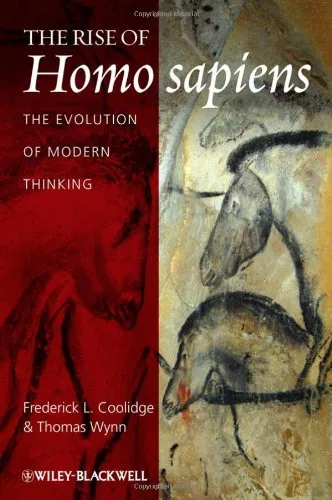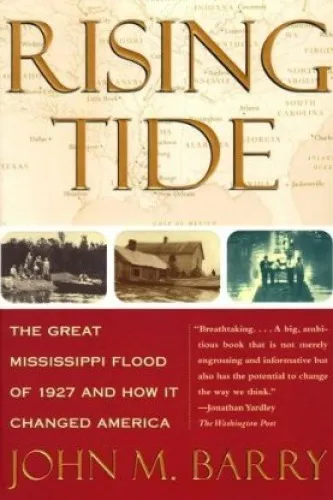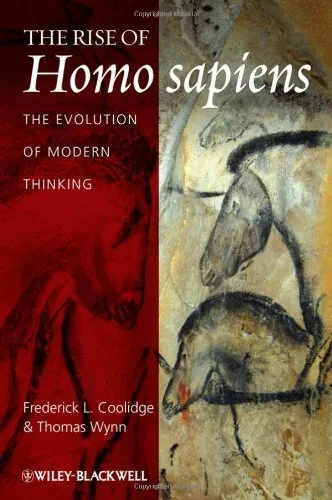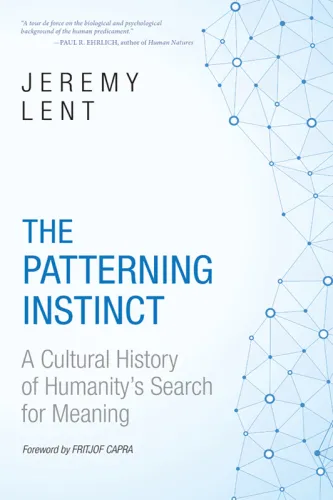The rise of Homo sapiens: the evolution of modern thinking
4.3
Reviews from our users

You Can Ask your questions from this book's AI after Login
Each download or ask from book AI costs 2 points. To earn more free points, please visit the Points Guide Page and complete some valuable actions.Related Refrences:
Introduction to "The Rise of Homo Sapiens: The Evolution of Modern Thinking"
"The Rise of Homo Sapiens: The Evolution of Modern Thinking," written by Frederick L. Coolidge and Thomas Wynn, is a groundbreaking exploration into one of the most fascinating topics in human history: the dawn of modern thought. This book delves deep into our evolutionary past to unravel the cognitive advancements that have made Homo sapiens the predominant species on Earth. Through a multidisciplinary lens, leveraging insights from archaeology, cognitive science, anthropology, and psychology, the authors examine the milestones in the evolution of modern human cognition.
The book is not merely an academic reflection but also a well-structured narrative that makes complex subjects accessible to a broad readership. Fascinating insights, sharp analyses, and poignant questions guide readers through humanity's intellectual transformation over the millennia. By addressing questions like when and how modern thinking first emerged, "The Rise of Homo Sapiens" offers profound perspectives on topics such as language, creativity, technological innovation, and social dynamics. This introduction summarizes the core themes of the book, its key insights, and why it matters in today’s era of self-reflection on human progress.
Detailed Summary of the Book
"The Rise of Homo Sapiens" begins by tracing the evolutionary lineage of hominins, focusing on critical differences in cognitive capabilities between Homo sapiens and earlier human species like Homo erectus, Neanderthals, and Denisovans. The authors explore the unique neurological and developmental changes that set Homo sapiens apart, including the expansion of the prefrontal cortex and advancements in working memory capacity.
One of the book's central arguments is the importance of working memory, which the authors suggest as the key driver behind the rapid development of problem-solving, symbolic thinking, and cumulative culture. With an emphasis on creativity, the ability to plan ahead, and complex social dynamics, Coolidge and Wynn propose that these skills were not only culturally transformative but also essential for survival in challenging prehistoric environments.
The book also discusses the archaeological evidence of symbolic behavior, including the use of pigments, portable art, and tools, which demonstrate increasing creativity and communication skills. Furthermore, it dives into language evolution, a hallmark of modern human thought, examining how language might have been shaped by and, simultaneously, shaped our cognitive abilities.
Unlike standard evolutionary books, this work provides a forward-looking consideration of how understanding the cognitive evolution of our ancestors can shed light on contemporary human behavior, intelligence, and the ongoing development of modern society.
Key Takeaways
- The emergence of modern cognitive abilities was gradual, with key breakthroughs in working memory and symbolic thought.
- Brain size alone does not explain cognitive superiority; the evolution of specific neurological structures played a significant role.
- The development of language and creativity was pivotal in the success of Homo sapiens compared to other species.
- Social cooperation and cumulative culture distinguish Homo sapiens from other early humans.
- Understanding our cognitive past can foster deeper insights into contemporary human challenges and achievements.
Famous Quotes from the Book
"The story of human evolution is not just the survival of the fittest, but the survival of the most adaptable thinkers."
"Modern cognition was not the product of a single leap, but the result of millions of years of gradual, complex changes."
"Symbolism was more than art; it was a lifeline to humanity’s innovation and emotional complexity."
Why This Book Matters
"The Rise of Homo Sapiens" is not just a study of ancient humans; it’s a roadmap for understanding the very essence of what it means to be human. At a time when humanity faces unprecedented technological and social transitions, reflecting on our cognitive past can offer answers to pressing questions about identity, creativity, and adaptability. This book matters because it bridges the gap between science and philosophy, shedding light on how our evolutionary successes and failures can help navigate the challenges of today and tomorrow.
For educators, scholars, and general readers alike, the book serves as an essential resource. It illuminates the connections between our biological evolution and the extraordinary cultural and social changes that define the human experience. By deeply understanding our shared heritage, we gain not only an appreciation of our uniqueness but also a sense of responsibility toward fostering the positive continuance of human creativity and cooperation.
Free Direct Download
You Can Download this book after Login
Accessing books through legal platforms and public libraries not only supports the rights of authors and publishers but also contributes to the sustainability of reading culture. Before downloading, please take a moment to consider these options.
Find this book on other platforms:
WorldCat helps you find books in libraries worldwide.
See ratings, reviews, and discussions on Goodreads.
Find and buy rare or used books on AbeBooks.
1384
بازدید4.3
امتیاز0
نظر98%
رضایتReviews:
4.3
Based on 0 users review
Questions & Answers
Ask questions about this book or help others by answering
No questions yet. Be the first to ask!













